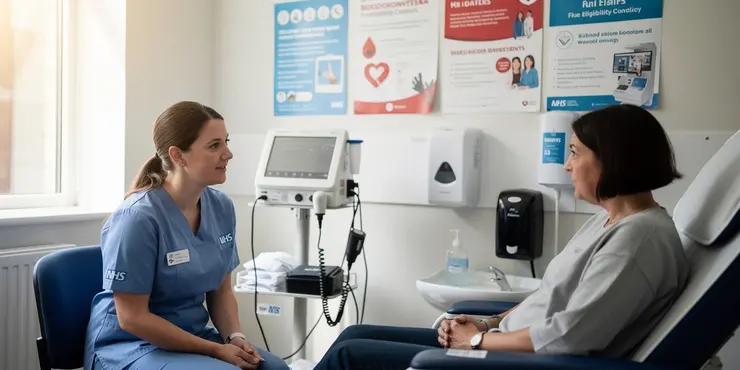
Find Help
More Items From Ergsy search
-
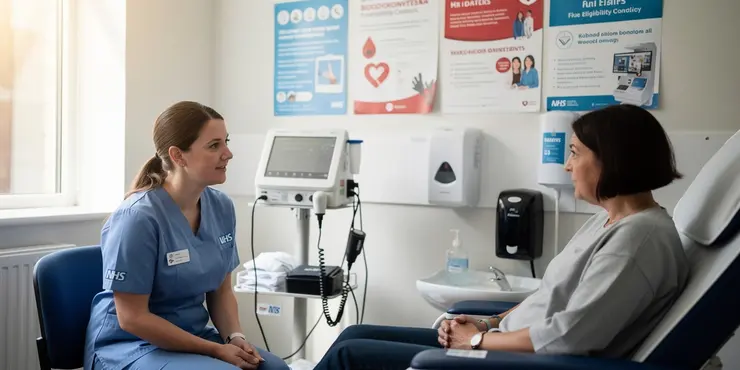
Can COVID-19 be transmitted through blood transfusions?
Relevance: 100%
-
What is a COVID-19 variant?
Relevance: 68%
-
What is the Covid-19 Stratus variant?
Relevance: 65%
-
How are COVID-19 variants detected?
Relevance: 64%
-
How do COVID-19 variants arise?
Relevance: 61%
-
Does the flu vaccine protect against COVID-19?
Relevance: 61%
-
Can the COVID jab give me COVID-19?
Relevance: 60%
-
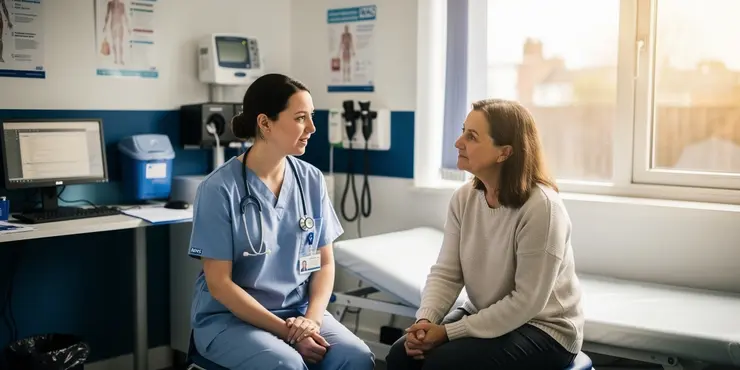
Should I get vaccinated if I already had COVID-19?
Relevance: 60%
-
Where can I learn about real Covid-19 variants?
Relevance: 59%
-
Do new variants affect COVID-19 testing?
Relevance: 59%
-
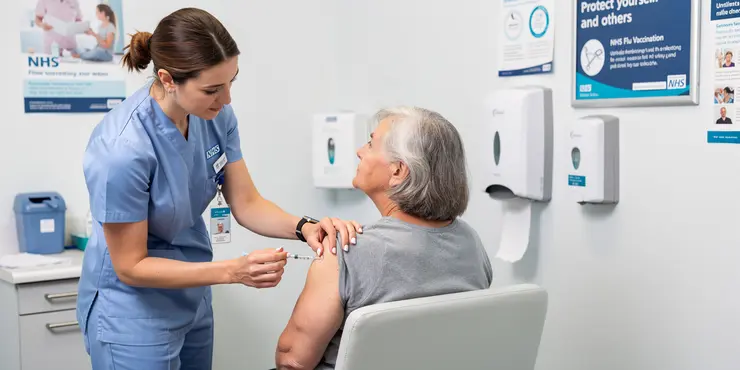
Will getting the flu jab protect me against COVID-19?
Relevance: 59%
-
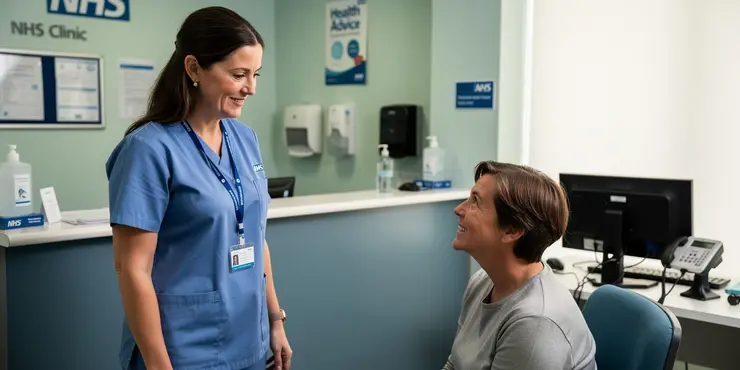
How can I protect myself from new COVID-19 variants?
Relevance: 58%
-
What is the process to identify a new Covid-19 variant?
Relevance: 58%
-
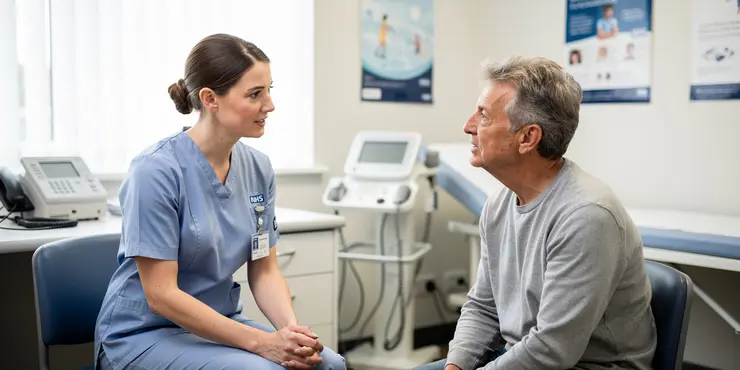
What sources should I consult for information on Covid-19?
Relevance: 58%
-
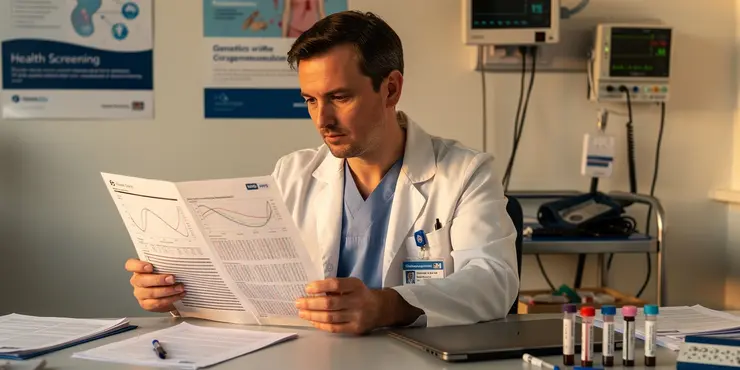
How do scientists name new Covid-19 variants?
Relevance: 57%
-
How often do new COVID-19 variants emerge?
Relevance: 57%
-
Does travel insurance cover COVID-19 related issues?
Relevance: 56%
-
What are the COVID-19 travel restrictions for traveling to Spain?
Relevance: 56%
-
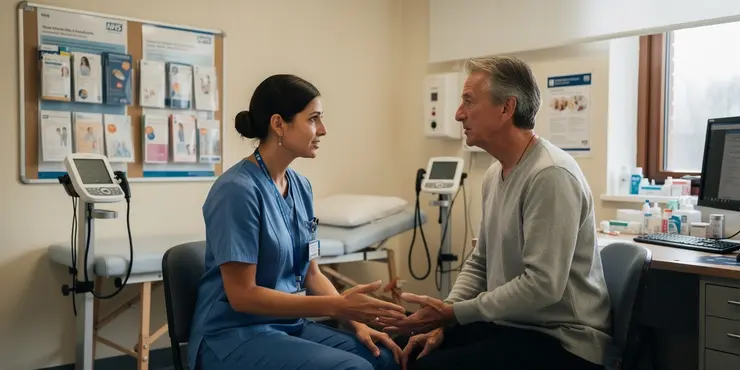
Are new COVID-19 variants more dangerous?
Relevance: 56%
-
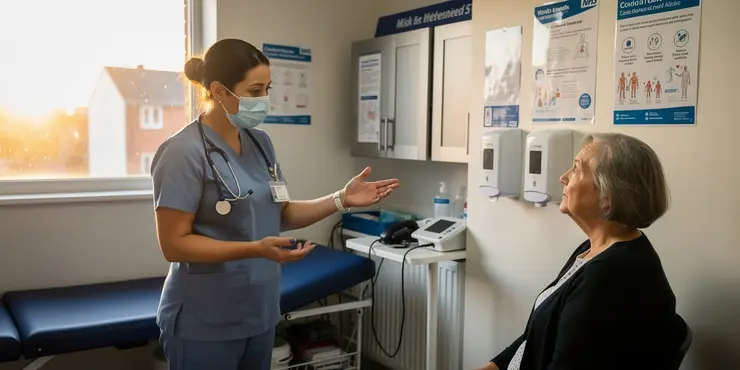
How can I protect myself from Covid-19 variants?
Relevance: 56%
-

Breathlessness after COVID-19 - helpful techniques
Relevance: 54%
-
Can air physiotherapy help with COVID-19 recovery?
Relevance: 54%
-

Do vaccines work against new COVID-19 variants?
Relevance: 53%
-

What diseases can be spread by blood transfusions?
Relevance: 53%
-
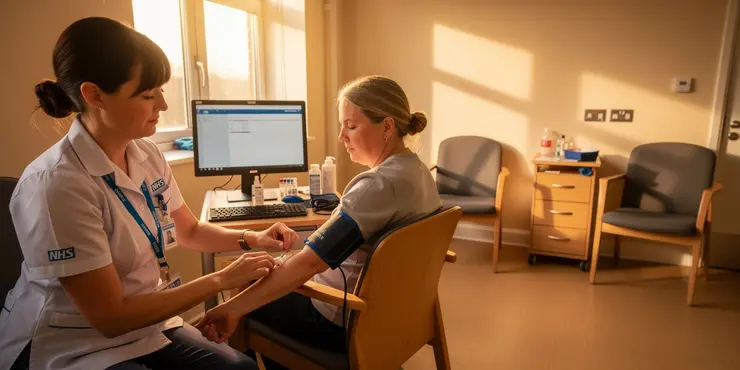
How is blood screened to prevent disease transmission?
Relevance: 52%
-
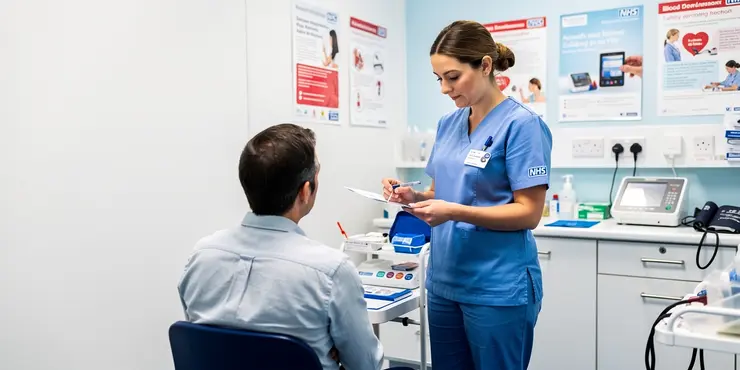
What measures are taken to prevent disease transmission in blood transfusions?
Relevance: 50%
-
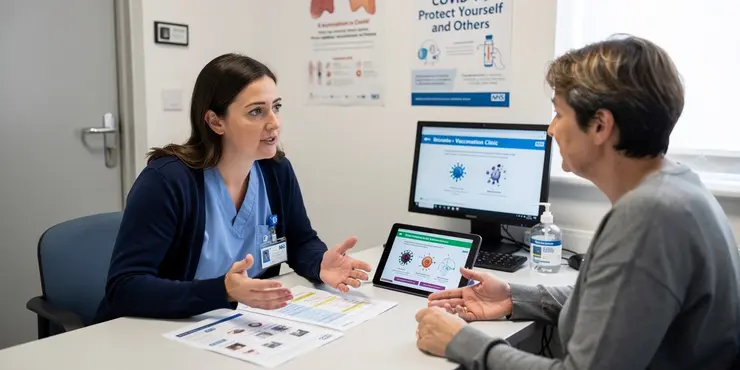
Are new variants more transmissible?
Relevance: 48%
-
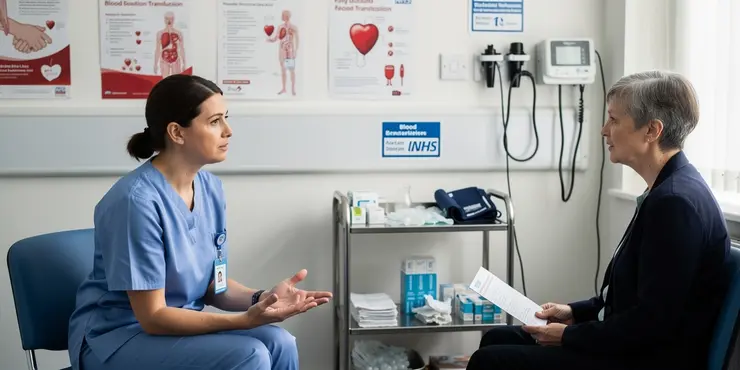
Is HTLV a risk in blood transfusions?
Relevance: 46%
-
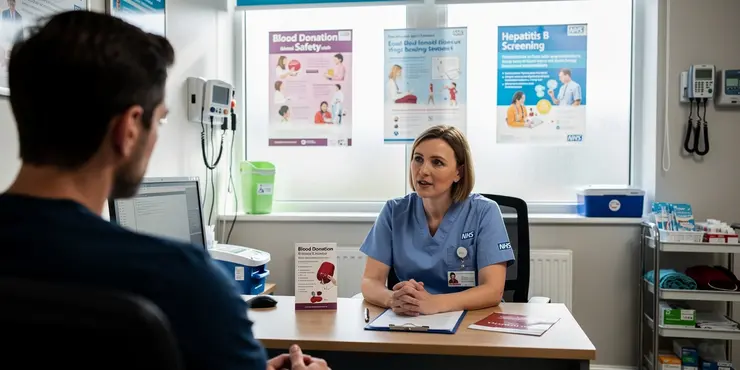
Is Hepatitis B a risk in blood transfusions?
Relevance: 44%
-
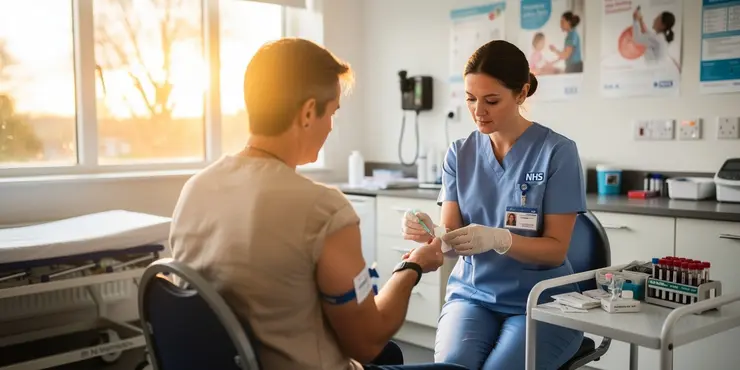
Is Chagas disease a concern with blood transfusions?
Relevance: 44%
-
Can HIV be transmitted through blood transfusions?
Relevance: 44%
-
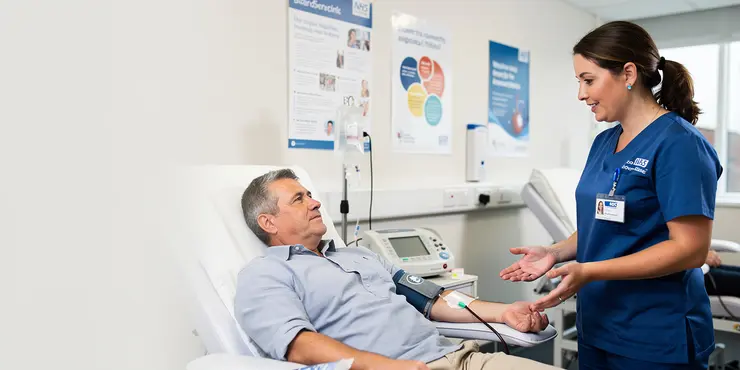
Are there any parasites that can be transmitted through blood transfusions?
Relevance: 44%
-
Can Dengue fever be transmitted through blood transfusions?
Relevance: 44%
-

Can syphilis be transmitted via blood transfusion?
Relevance: 43%
-
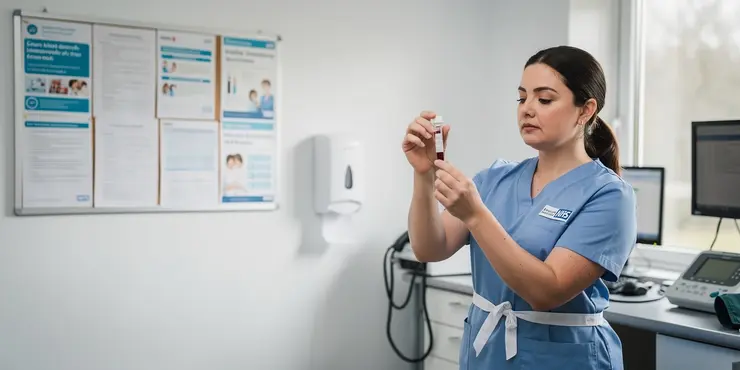
What is the most common disease transmitted by blood transfusion?
Relevance: 43%
-
Is malaria still a concern for blood transfusion safety?
Relevance: 43%
-
Blood Product Transfusions
Relevance: 43%
-
What is a blood transfusion?
Relevance: 42%
-
Is Zika virus screened for in blood transfusions?
Relevance: 41%
-
Can bacterial infections be transmitted through blood transfusion?
Relevance: 41%
Can COVID-19 be Transmitted through Blood Transfusions?
The COVID-19 pandemic, caused by the SARS-CoV-2 virus, has raised numerous questions about its modes of transmission. A notable area of concern is whether the virus can be transmitted through blood transfusions. Understanding the safety implications regarding blood donation and transfusion is crucial for both donors and recipients.
Understanding SARS-CoV-2 Transmission
Primarily, COVID-19 spreads via respiratory droplets produced when an infected person coughs, sneezes, or talks. The virus can also spread by touching surfaces contaminated with the virus and then touching the face. However, bloodborne transmission is distinctly different from these modes.
Blood Transfusion Safety and COVID-19
According to health organisations, including the World Health Organization (WHO) and the UK National Health Service (NHS), there is currently no evidence that COVID-19 can be transmitted through blood transfusions. SARS-CoV-2 primarily targets the respiratory system and has not been identified as a bloodborne pathogen. Historically, respiratory viruses have not been transmitted by blood transfusion, and this includes coronaviruses such as SARS and MERS.
Screening and Precautions in Blood Donation
The UK's blood donation services have implemented stringent screening procedures to ensure the safety of the blood supply. Donors are typically asked about their health and any symptoms of illness. Individuals with COVID-19 symptoms or those who have been in contact with confirmed cases are asked to wait for a defined period before donating blood. This precaution helps prevent the potential spread of the virus, even though the risk of transmission via blood is considered negligible.
Current Research and Recommendations
Ongoing research continues to monitor the potential risks associated with COVID-19 and blood transfusion. Current scientific consensus supports that the likelihood of virus transmission through blood is extremely low, if existent at all. Nonetheless, blood donation centres maintain rigorous hygiene practices and are guided by ongoing research findings.
Conclusion
The collective evidence so far suggests that COVID-19 does not pose a threat through blood transfusions in the UK. The measures taken by health authorities ensure that blood donations remain safe. Donors are encouraged to continue donating blood, as it is a critical aspect of healthcare, helping save lives during and beyond the pandemic. The public can be reassured by the continued vigilance in the monitoring of this potential transmission route, ensuring that blood transfusions remain safe during these unprecedented times.
Can COVID-19 Spread through Blood Transfusions?
COVID-19 is caused by a virus called SARS-CoV-2. Many people are asking if this virus can spread through blood transfusions. It is important to know if blood donation and transfusion are safe for everyone.
How COVID-19 Spreads
COVID-19 mainly spreads when someone with the virus coughs, sneezes, or talks. Tiny droplets with the virus can reach others this way. You can also catch it by touching things with the virus and then touching your face. But spreading through blood is different.
Blood Transfusion Safety and COVID-19
Health experts, like those from the World Health Organization (WHO) and the UK National Health Service (NHS), say there's no proof that COVID-19 spreads through blood transfusions. The virus mainly affects the lungs and is not known to live in blood. Past viruses like SARS and MERS also did not spread this way.
Safety Checks for Blood Donations
In the UK, blood donation centres have strong safety checks. They ask donors about their health and any signs of sickness. People who feel sick or who have been near someone with COVID-19 must wait before giving blood. Even though the risk is very low, this helps keep blood donations safe.
Research and Safety Advice
Scientists are still studying COVID-19 and blood transfusions. They believe there is nearly no risk of spreading the virus through blood. Blood donation centres follow strict cleaning rules and stay updated with new findings.
Conclusion
So far, it seems COVID-19 is not spread through blood transfusions in the UK. Health authorities work hard to make sure blood donations are safe. Giving blood is important because it helps save lives. People can feel safe donating blood, knowing there's careful checking and monitoring.
Frequently Asked Questions
Can COVID-19 be transmitted through blood transfusions?
Current evidence and guidelines from health organizations suggest that COVID-19 is not transmitted through blood transfusions.
Has there been any case of COVID-19 transmission via blood transfusion?
As of now, there have been no reported cases of COVID-19 transmission through blood transfusion.
Are blood donors screened for COVID-19?
Yes, blood donors are typically screened for symptoms of COVID-19 and other criteria to ensure their eligibility and safety in donating blood.
What measures are blood banks taking to ensure safe transfusions during the pandemic?
Blood banks follow strict protocols, including donor screening and disinfection measures, to ensure the safety of blood transfusions during the pandemic.
Can symptomatic individuals donate blood?
No, individuals showing symptoms of illness, including COVID-19, are generally deferred from donating blood until they are fully recovered.
What happens if someone unknowingly donates blood while infected with COVID-19?
Donors are screened, and only healthy individuals are allowed to donate. However, there is no evidence to suggest COVID-19 is transmitted through blood.
Do blood transfusion recipients need to worry about COVID-19?
According to current guidelines, there is no evidence that recipients of blood transfusions are at risk of contracting COVID-19 through the procedure.
Is there ongoing research into COVID-19 and blood transfusions?
Yes, research is ongoing to continuously ensure the safety of blood transfusions, but current findings show no transmission of COVID-19 via blood.
How does COVID-19 primarily spread?
COVID-19 mainly spreads through respiratory droplets from coughs or sneezes, close personal contact, or touching surfaces infected by the virus.
Can donated blood carry any viruses?
Blood is routinely screened for many viruses, but research shows COVID-19 is not among the viruses that can be transmitted through blood transfusion.
What guidelines do health organizations provide regarding blood donation and COVID-19?
Health organizations recommend strict donor screening and adherence to safety protocols to prevent any potential risks associated with blood donation.
Why is there concern about COVID-19 and blood transfusions?
Initially, there was concern due to the new nature of COVID-19, but research has alleviated fears about its transmission through blood.
Are there specific tests for COVID-19 in blood donation?
Currently, blood donations are not routinely tested specifically for COVID-19 because transmission through blood is not a concern.
If a donor had asymptomatic COVID-19, can they still donate blood?
Provided they meet all other eligibility requirements, individuals who had asymptomatic COVID-19 can donate blood after a safe period.
How soon after recovering from COVID-19 can a person donate blood?
Recovery guidelines can vary, but generally, individuals can donate blood at least a couple of weeks after full recovery and symptom resolution.
Are blood centers taking precautions amidst the COVID-19 pandemic?
Yes, blood centers have increased precautions, including enhanced sanitation, social distancing measures, and personal protective equipment.
Is there a blood supply shortage due to COVID-19?
There have been concerns about blood supply shortages due to decreased donations during the pandemic, but efforts continue to encourage safe donations.
What is the role of convalescent plasma in treating COVID-19?
Convalescent plasma, taken from recovered COVID-19 patients, has been studied as a treatment option but requires separate considerations from regular blood donations.
Can receiving a blood transfusion affect COVID-19 vaccination efficacy?
Receiving a blood transfusion should not affect the efficacy of COVID-19 vaccination according to current understanding and studies.
What should a person do if they have concerns about receiving blood during the pandemic?
Individuals should discuss any concerns with their healthcare provider to understand the safety measures in place and address specific questions.
Can you catch COVID-19 from a blood transfusion?
No, you cannot catch COVID-19 from a blood transfusion.
If you want to know more, you can ask a doctor. You can also use text-to-speech tools to help read aloud. This can make understanding easier.
Experts say that COVID-19 does not spread through blood transfusions.
Can you get COVID-19 from a blood transfusion?
No cases of catching COVID-19 from blood transfusions have been reported. If you are worried, you can talk to a doctor for more information.
If you find reading hard, try these helpful tools:
- Read out loud with someone.
- Use a reading ruler to stay on the right line.
- Ask someone to explain words you don't understand.
Right now, there are no reports of anyone getting COVID-19 from a blood transfusion.
Do they check blood donors for COVID-19?
Yes, blood donors are checked for COVID-19. This means they look to see if donors have the virus.
If you want to learn more, ask a doctor or visit a local health clinic.
Reading tip: Using pictures or videos can help you understand better. You can also ask someone to read with you.
Yes, people who give blood are checked to see if they have signs of COVID-19. This is to make sure it is safe for them to give blood.
How do blood banks keep blood safe during the pandemic?
Blood banks have rules to keep blood safe. They check people who give blood and clean everything. This makes sure blood is safe, even when people are sick in the world.
Can people who feel sick give blood?
No, if someone is sick or has COVID-19, they usually cannot give blood until they feel completely better.
What if a person gives blood and they have COVID-19, but they don't know?
We check people who want to give blood. Only people who are healthy can give blood. There is no proof that COVID-19 can be passed on through blood.
Should people getting blood worry about COVID-19?
If you are getting blood from someone else, you might wonder about COVID-19.
Here is what you need to know:
- Doctors check the blood to make sure it is safe.
- COVID-19 mostly spreads in other ways, like through the air when people cough or sneeze.
- If you have questions, talk to your doctor or a nurse. They can help you feel better.
Right now, experts say getting blood is safe. You cannot catch COVID-19 from a blood transfusion.
Are scientists studying COVID-19 and blood transfusions?
Yes, scientists are learning more about COVID-19 and how it affects blood transfusions.
If you find reading hard, you can ask someone to read with you. Drawing pictures or using videos can help understand better.
Scientists are working hard to make sure giving blood is safe. So far, they have found that you can't get COVID-19 from blood.
How does COVID-19 spread most of the time?
COVID-19 spreads in a few ways. It spreads when someone coughs or sneezes. It can also spread when you are close to someone who has it. You can catch it by touching things with the virus on them.
Can donated blood have viruses?
Blood that is given can sometimes have germs that make people sick. These germs are called viruses. Doctors check the blood to make sure it is safe. Tools like simple reading guides or using pictures can help understand big words or ideas.
Doctors always check blood for different viruses. But, COVID-19 cannot be spread by blood transfusion.
What do health groups say about giving blood during COVID-19?
Here is how health groups want you to stay safe when you give blood during COVID-19:
- Feel healthy and strong before you donate.
- Wear a mask if the health center says to.
- Clean your hands often.
- Keep a safe distance from others.
- Ask a doctor if you have questions.
If you need help reading, ask a friend or use an app that reads aloud.
Health groups say to check donors carefully and follow safety rules. This helps keep blood donations safe.
Why do people worry about COVID-19 and blood transfusions?
People are worried about COVID-19 because it can make people sick. When someone gets a blood transfusion, they get blood from someone else. Some people wonder if the virus can be in the blood.
There are some good ways to help understand this:
- Look at pictures or videos that explain blood transfusions.
- Ask a doctor or nurse to explain it step by step.
- Use apps that read text out loud if it's hard to read.
At first, people were worried because COVID-19 was new. But now, scientists have learned more, and we know it doesn't spread through blood. So, we don't need to be scared about that.
Do they check for COVID-19 when you give blood?
Right now, when people donate blood, the blood is not tested for COVID-19. This is because people cannot get COVID-19 from blood donations.
Can someone give blood if they have COVID-19 but feel fine?
Yes, people with COVID-19 can give blood if they feel well and healthy. They should wait until 10 days after their positive test before donating. It is always good to check with the doctor or nurse first.
If all other rules are followed, people who had COVID-19 but did not feel sick can give blood after a safe time has passed.
When can you give blood after getting better from COVID-19?
When you feel all better, you might wait a couple of weeks before giving blood. This gives your body time to fully heal.
Are blood centers being careful because of COVID-19?
Blood centers are being very careful because of COVID-19. They want to keep everyone safe.
Here are some things they do:
- They clean everything a lot.
- Workers wear masks and gloves.
- People stay apart from each other.
If you have questions, you can ask a worker for help.
Yes, blood centers are being very careful. They are cleaning well, keeping people apart, and using special gear to stay safe.
Is there less blood because of COVID-19?
People are worried because there isn't enough blood for those who need it. Not as many people gave blood when they stayed home during the pandemic. But people are working hard to make blood donations safe and to get more people to help.
How does convalescent plasma help treat COVID-19?
Convalescent plasma is blood from people who have gotten better from COVID-19. This blood has special fighters called antibodies.
These antibodies can help people who are sick with COVID-19. The doctors hope it makes them better faster.
If reading is hard, you can ask a friend, family member, or teacher to help. You can also listen to the words if there is a way to hear them read out loud. Remember, it's okay to ask for help!
Convalescent plasma is a special part of blood. It comes from people who got better after having COVID-19. Scientists look at using it to help other sick people. It's different from giving regular blood, and we have to think about it in a special way.
If you need help reading, you can:
- Ask someone to read with you.
- Use a tool that reads text out loud.
- Take breaks if the text feels too long.
Can getting a blood transfusion change how well the COVID-19 vaccine works?
If you get a blood transfusion, it means you get some blood from another person. Some people might worry if this can change how the COVID-19 vaccine works in your body. But doctors can help you understand. It's good to ask a doctor if you have questions. They can explain it in a way that makes you feel better.
Here are some tips to help you understand:
- Ask someone you trust to read the information with you.
- Use pictures to help explain ideas.
- Repeat the information in your own words.
- Write down questions you want to ask the doctor.
Getting a blood transfusion should not change how well the COVID-19 vaccine works, according to what experts know right now.
What to do if you are worried about getting blood during the pandemic?
If you are worried about getting blood during the pandemic, here is what you can do:
- Talk to your doctor or nurse. They can help you and answer your questions.
- Ask a family member or friend to help you understand things.
- Write down your worries. Then, talk about them with someone you trust.
- Use simple picture charts to understand how getting blood helps you.
It is important to talk about your worries so you feel safe and know what is happening.
Talk to your doctor if you have questions. They can help you understand how to stay safe and answer anything you want to know.
Useful Links
This website offers general information and is not a substitute for professional advice.
Always seek guidance from qualified professionals.
If you have any medical concerns or need urgent help, contact a healthcare professional or emergency services immediately.
Some of this content was generated with AI assistance. We’ve done our best to keep it accurate, helpful, and human-friendly.
- Ergsy carfully checks the information in the videos we provide here.
- Videos shown by Youtube after a video has completed, have NOT been reviewed by ERGSY.
- To view, click the arrow in centre of video.
- Most of the videos you find here will have subtitles and/or closed captions available.
- You may need to turn these on, and choose your preferred language.
- Go to the video you'd like to watch.
- If closed captions (CC) are available, settings will be visible on the bottom right of the video player.
- To turn on Captions, click settings .
- To turn off Captions, click settings again.
More Items From Ergsy search
-

Can COVID-19 be transmitted through blood transfusions?
Relevance: 100%
-
What is a COVID-19 variant?
Relevance: 68%
-
What is the Covid-19 Stratus variant?
Relevance: 65%
-
How are COVID-19 variants detected?
Relevance: 64%
-
How do COVID-19 variants arise?
Relevance: 61%
-
Does the flu vaccine protect against COVID-19?
Relevance: 61%
-
Can the COVID jab give me COVID-19?
Relevance: 60%
-

Should I get vaccinated if I already had COVID-19?
Relevance: 60%
-
Where can I learn about real Covid-19 variants?
Relevance: 59%
-
Do new variants affect COVID-19 testing?
Relevance: 59%
-

Will getting the flu jab protect me against COVID-19?
Relevance: 59%
-

How can I protect myself from new COVID-19 variants?
Relevance: 58%
-
What is the process to identify a new Covid-19 variant?
Relevance: 58%
-

What sources should I consult for information on Covid-19?
Relevance: 58%
-

How do scientists name new Covid-19 variants?
Relevance: 57%
-
How often do new COVID-19 variants emerge?
Relevance: 57%
-
Does travel insurance cover COVID-19 related issues?
Relevance: 56%
-
What are the COVID-19 travel restrictions for traveling to Spain?
Relevance: 56%
-

Are new COVID-19 variants more dangerous?
Relevance: 56%
-

How can I protect myself from Covid-19 variants?
Relevance: 56%
-

Breathlessness after COVID-19 - helpful techniques
Relevance: 54%
-
Can air physiotherapy help with COVID-19 recovery?
Relevance: 54%
-

Do vaccines work against new COVID-19 variants?
Relevance: 53%
-

What diseases can be spread by blood transfusions?
Relevance: 53%
-

How is blood screened to prevent disease transmission?
Relevance: 52%
-

What measures are taken to prevent disease transmission in blood transfusions?
Relevance: 50%
-

Are new variants more transmissible?
Relevance: 48%
-

Is HTLV a risk in blood transfusions?
Relevance: 46%
-

Is Hepatitis B a risk in blood transfusions?
Relevance: 44%
-

Is Chagas disease a concern with blood transfusions?
Relevance: 44%
-
Can HIV be transmitted through blood transfusions?
Relevance: 44%
-

Are there any parasites that can be transmitted through blood transfusions?
Relevance: 44%
-
Can Dengue fever be transmitted through blood transfusions?
Relevance: 44%
-

Can syphilis be transmitted via blood transfusion?
Relevance: 43%
-

What is the most common disease transmitted by blood transfusion?
Relevance: 43%
-
Is malaria still a concern for blood transfusion safety?
Relevance: 43%
-
Blood Product Transfusions
Relevance: 43%
-
What is a blood transfusion?
Relevance: 42%
-
Is Zika virus screened for in blood transfusions?
Relevance: 41%
-
Can bacterial infections be transmitted through blood transfusion?
Relevance: 41%


